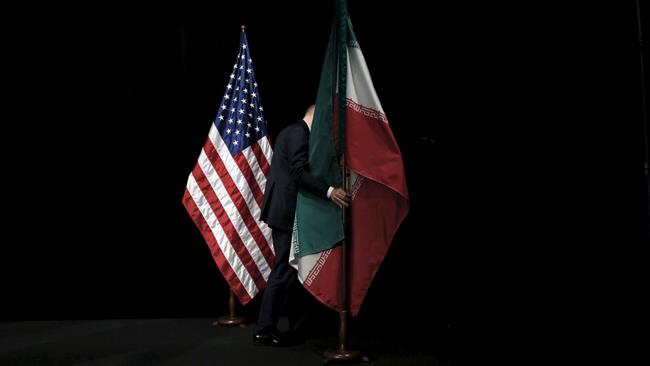After the JCPOA�s implementation day on January 16, the Islamic Republic of Iran has pursued all of its commitments including dipping its enriched uranium stockpile by 98 percent, restricting its number of centrifuges enriching uranium to 6,000, implementing strict observation measures and etc.
Recently, Supreme Leader of the Islamic Revolution Ayatollah Seyyed Ali Khamenei urged people of literature and poets to illuminate public opinion on the US treason against the JCPOA.
As for the unfaithful behavior of the US towards the JCPOA, Ayatollah Khamenei said that in addition to political experts and commentators, artists and literary people, especially poets, should focus on explaining the realities to the public opinion.
So far numerous Iranian politicians and businessman have echoed their concerns that�US is yet to fulfill its obligations under the nuclear deal between Iran and the P5+1 group of countries despite Tehran�s commitment to its side of the accord.
At present, Tehran still has troubles in its banking transactions or in restoring its frozen assets, undeniably, worried of existing non-nuclear sanctions and the outlook of new sanctions, international banks and corporations with US-based operations have been afraid of trading with or investing in Iran.
Months after the removal of anti-Iran sanctions, there is rising frustration among European politicians, diplomats and business people over the inability to complete dozens of energy, aviation and construction deals with Iran.
According to the New York Times report, the main barrier, the Europeans countries say, is their ally, the US. The European banks are declining to finance any of the deals. The Europeans also point to new American visa regulations that make it more difficult for them to enter the United States if they have traveled to Iran. Those financial and travel restrictions, they say, make it nearly impossible to reach agreements with their Iranian counterparts.
The hurdles set up by the United States, Europeans say, are also infuriating Iranian officials and undermining what they understood to be one of the main goals of the nuclear deal, which was to reopen the doors of the Iranian market to the world.
On January 17,the Central Bank of Iran (CBI) announced that the Society for Worldwide Interbank Financial Telecommunication (SWIFT) has removed Iranian banks from its list of sanctioned financial institutions but so far.
Although Iranian officials insist that nearly all banks have been reconnected to SWIFT after the removal sanctions, many companies complain about the hardship they face in trade.
Many Iranian companies believe that no major breakthrough has occurred despite the announcement that Iranian banks have been reconnected to SWIFT.
Several months ago, the vice president of the European Parliament�s Delegation for Relations with the United States Marietje Schaake said Washington is �obstructing� the full implementation of a lasting nuclear deal between Tehran and world powers and Europe is being taken hostage by American policy.
�We negotiated the nuclear deal together, but now the US is obstructing its execution,� Schaake added.
In the past, a large number of European banks also have paid billions in fines due to the so-called Tehran sanctions violations. As a result, the Islamic Republic has not been able to receive expected foreign investment or have international banks facilitate the business agreements it has clinched since the JCPOA�s implementation.
Back in March, Ayatollah Khamenei stated that Tehran still has problems in its banking transactions or in restoring its frozen assets, because Western countries and those involved in such processes are afraid of Americans.
Hence, so far several Iranian officials have called for a practical move by the US to remove Iran�s problems in interactions with foreign banks, according to its obligations under the JCPOA.
Tehran also has warned that if the Americans fail to resolve the issues, it means that Washington has not fulfilled its commitments and Iran could, therefore, reconsider the nuclear deal.
# Tags











